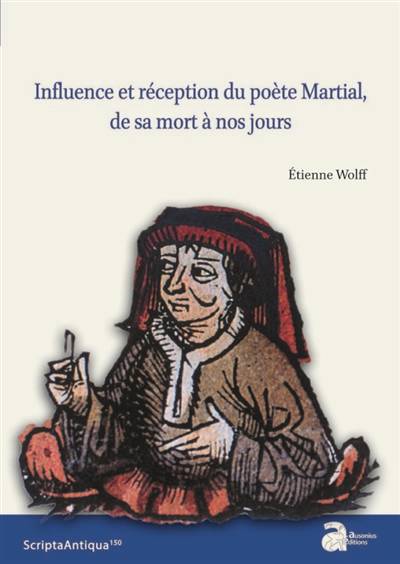
- Retrait gratuit dans votre magasin Club
- 7.000.000 titres dans notre catalogue
- Payer en toute sécurité
- Toujours un magasin près de chez vous
- Retrait gratuit dans votre magasin Club
- 7.000.0000 titres dans notre catalogue
- Payer en toute sécurité
- Toujours un magasin près de chez vous
Influence et réception du poète Martial, de sa mort à nos jours
Wolff EtienneDescription
Influence et réception du poète Martial, de sa mort à nos jours
Ce volume Influence et réception du poète Martial, de sa mort à nos jours contient les communications prononcées au colloque international qui s'est tenu, sous le même intitulé, à l'Université de Paris Nanterre les 24 et 25 octobre 2019. Elles émanent toutes de spécialistes reconnus du sujet et sont présentées ici selon un ordre chronologico-thématique.
Il s'agissait de s'intéresser à la réception et à l'influence de Martial en Occident, un auteur qui, à l'exception d'une petite éclipse au Moyen Âge, a été abondamment lu, imité, traduit, adapté, en latin et dans toutes les langues de l'Europe, et qui a symbolisé longtemps le genre épigrammatique lui-même.
Bien sûr on ne prétendait pas aborder de manière exhaustive tous les aspects d'un sujet si vaste. On voulait, plus modestement, par des approches croisées et plurielles (étude de la transmission manuscrite, histoire des éditions et traductions, intertextualité, influence littéraire, etc.), montrer l'importance du destin posthume de Martial.
Les contributions, riches et variées, certaines synthétiques, d'autres plus ponctuelles, ont en tout cas balayé un large champ. Elles constituent une solide introduction à l'histoire de la réception de Martial qui faisait jusqu'ici défaut.
This volume Influence et réception du poète Martial, de sa mort à nos jours contains the papers delivered at the international symposium, held under the same title at the University of Paris Nanterre on October 24 and 25,2019. They all come from recognized specialists in the field and are presented here in a chronologico-thematic order.
We intended to focus on the reception and influence of Martial in the West, an author who, with the exception of a small eclipse in the Middle Ages, was widely read, imitated, translated, adapted, in Latin and in all the languages of Europe, and which symbolized for a long time the epigrammatic genre itself...
Of course we did not pretend to comprehensively examine all aspects of such a vast subject We wanted, more modestly, by crossed and plural approaches (study of the handwritten transmission, history of the editions and translations, intertextuality, literary influence, etc.), to show the importance of the posthumous destiny of Martial.
The papers, rich and varied, some synthetic, others more specific, have in any case covered a wide field. They constitute a solid introduction to the history of the reception of Martial that was hitherto lacking.
Spécifications
Parties prenantes
- Auteur(s) :
- Editeur:
Contenu
- Nombre de pages :
- 390
- Langue:
- Français, Anglais, Italien
Caractéristiques
- EAN:
- 9782356134370
- Date de parution :
- 22-02-22
- Format:
- Livre broché
- Dimensions :
- 170 mm x 240 mm
- Poids :
- 737 g

Les avis
Nous publions uniquement les avis qui respectent les conditions requises. Consultez nos conditions pour les avis.






